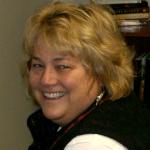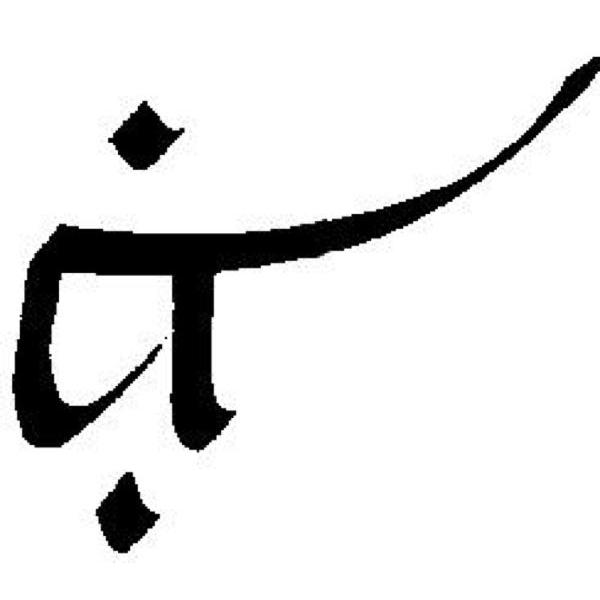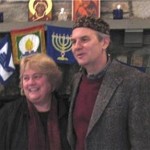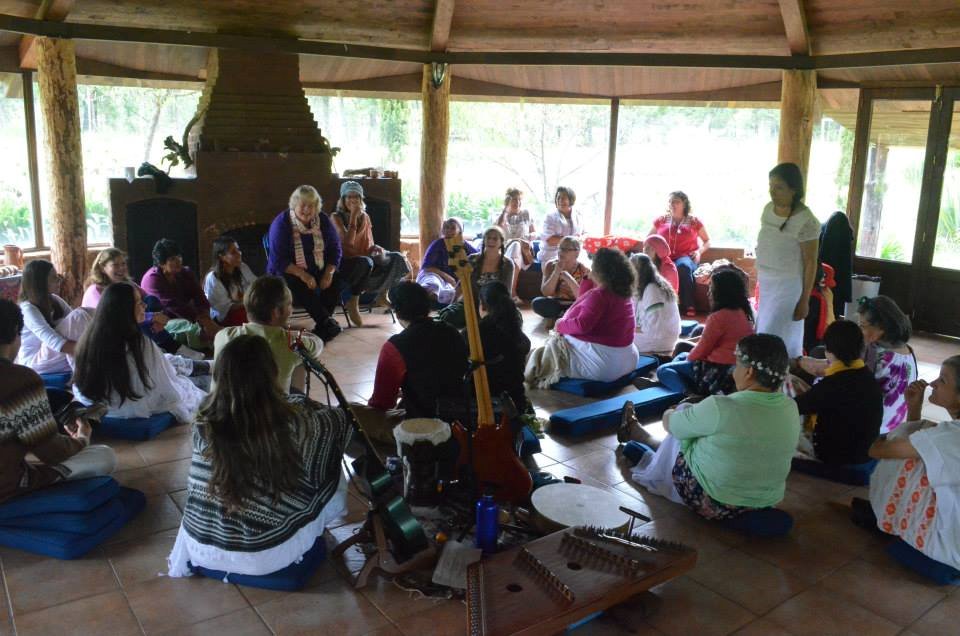By Sharon Abercrombie
(This is the third of an ongoing series of stories featuring people worldwide who are sharing Neil Douglas-Klotz’s Aramaic Jesus and Desert Wisdom-related work. Our current profile highlights Munira Elizabeth Reed, executive director of the Shalem Center in Worthington, Ohio, near Columbus. Since 1998, Munira has been turning this midwestern city into the American outreach headquarters for local, national and international Aramaic spirituality retreats).
It was 1997 and Elizabeth Reed assumed she was set for life. A United Methodist minister since the early 1980’s, she had served a brief pastorship before moving into administrative programming around women’s issues and Christian leadership training for the West Ohio Conference of the UMC. In 1992, with a Ph.D. counseling and spirituality degree from Union Institute in Cincinnati, Elizabeth began directing a counseling ministry for her conference at the Shalem Center located in the heart of central Ohio.
 Things were moving along right on track. That is, until a day in 1997 when a recent friend came to town for a visit and gave her hostess something new to think about. She happened to be an intuitive whose observations had always proved to be remarkably accurate, said Elizabeth.
Things were moving along right on track. That is, until a day in 1997 when a recent friend came to town for a visit and gave her hostess something new to think about. She happened to be an intuitive whose observations had always proved to be remarkably accurate, said Elizabeth.
During one particularly animated, lively discussion around religion, Elizabeth’s friend predicted that “something good was going to happen” to widen her spiritual path. Such as? Elizabeth countered. What more could there possibly be? She appreciated the progressiveness of the Methodist church. Its blessings had included imparting an enduring/endearing model of Jesus as seen through the Social Gospel and it had given her valuable insights from studying the historical-critical method of Scriptural analysis.
It was strong on feminism. It cared about Nature and the environment — three issues Elizabeth Reed had championed since age 15, back in her hometown of West Point, Georgia, when she left the Southern Baptists for the United Methodists.
The Methodists gave her the opportunity to serve on youth councils as a young woman. When she later decided to go into the ministry, the Candler School of Theology welcomed her and the 59 other women into its seminary of 600 students.
But still, she was intrigued by her guest’s prediction. Curious enough, in fact, that Elizabeth vowed to remain totally open to the unexpected. She didn’t have to wait for long. The next year, 1998, Elizabeth went to Indianapolis to attend a conference sponsored by the Association of Humanistic Psychology. Conferences such as these were annual events, since she was required to get CEU’s every year to maintain her counseling certification.
“This time, I decided to just go with an intuitive draw rather than responding to a known ‘guru on the circuit’ about workshops. One entitled “Middle Eastern Views of Personality” sounded good to her. It certainly proved to be so.
“My life changed when I walked through that door.” Her head buzzed with new information. Her heart grew wings.
That momentous day, Neil Douglas-Klotz, the presenter, talked about psychology, theology, body somatics, and
directspiritual experience. He combined his presentations with guitar playing and chanting. He taught his audience the Aramaic words for the Lord’s Prayer. He got them out of their seats into a dancing circle.
Elizabeth recalls having “a visceral experience where everything came together for me. He was teaching us how to heal our cosmological split.” And of course, like many other people who experience the Aramaic way of looking at the Universe and spirituality, Elizabeth “bought up every brochure, book, tape on the table.” Back home in Ohio, she told her partner, MJ, “Wherever he’s teaching in North America, I’m going.” Swept along by Elizabeth’s enthusiasm, MJ said she wanted to go too.
A few months later, they traveled to hear him in Quebec. When Neil announced that he was searching for a non-profit to lend support to his USA work, Elizabeth took the proposal to her Shalem board right away. The board said yes. Result: the last 16 years of her life have turned into a whirlwind juggling of her paid counseling work, with volunteer Abwoon Aramaic work. “When I get involved, I get involved very quickly.”
A scant few months following Quebec, Elizabeth arranged for Neil to come to Columbus for the first in a series of annual public workshops, which still happen every October, and sometimes April. She learned to play guitar and drum. She plunged into the study of Ruhaniat Sufism.
In 2007, she wrote a book for other Aramaic students, entitled Abwoon Circles: Starting a Local Group, to help people who wanted to organize regular meetings around Aramaic Jesus practices, meditations and dances.
Always the idea person, Elizabeth, now Sufi Munira, approached Neil in 2006 about his starting a three-year ongoing
training program for individuals who wanted to lead their own Aramaic and Desert Wisdom gatherings. Dubbed the Aramaic Interspiritual Leadership Program, (AILP) groups grew in the USA, the UK and Germany . The last AILP concluded this past April.
A new program on healing will begin in early November in Columbus, the first of a three-year ongoing series, with the sessions co-lead by Neil and his wife, Natalia Lapteva. The program at Proctor Conference Center in London, Ohio will be preceded by a public weekend October 24-26, in Columbus, entitled “Thousands of Ways to Kneel and Kiss the Ground.
Munira’s own dance and retreat work is currently taking her far and wide, from Mexico, to North Carolina, and back to Ohio. As this blog goes to press, she recently returned from Guadalajara, Mexico, where she and Pennsylvania dance leader Yasmin Haut co-faciliated an Aramaic Lord’s Prayer Retreat.
She will catch up on work at the Shalem Center, then spend next weekend doing an outreach Dances appearance at a college student event in Delaware, Ohio, followed by a stint the next night at an Enneagram conference in Dayton. The next week she will focus her twice-monthly Aramaic Yeshua and Sufism group, a class which looks at the relationship of the Aramaic Yeshua and word meanings from Semitic languages, and Middle Eastern Spiritual practices.
“One interesting dynamic of this group has been when the discussion is responsive to, say one week predominantly Sufi focus and another time predominantly by liberal/progressive Roman Catholic and other Christian concerns and passions,” she said.
During our luncheon interview conducted shortly before Munira left for a Lama Dance Camp retreat in New Mexico, I asked her a question which probably every “convert” to Universal Sufism lives with: Where does one’s ‘old’, former religion fit into the path their new spirituality has taken them?
She thought for a moment before responding: There is always some place where you will bump up against the limits of one religion, she said. “One religious path is just not wide enough. The light of truth is in all paths. We need this universality, to put the whole picture into perspective. I guess you could say that I’m a post-Methodist. Methodism is who I am. It birthed me into the person I became back when I was 15, and for that I have a great gratitude.
What does she love most about teaching and Dance leading? “When I see people having the real experience of seeing the Divine in another person’s eyes, people experiencing ‘Saba Ana,’ the delight of the Universe, it’s like being a child. You see someone get what you’ve felt yourself.”



